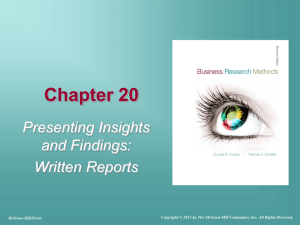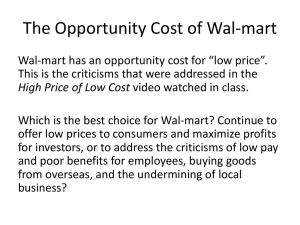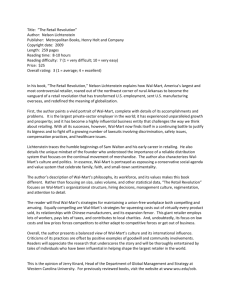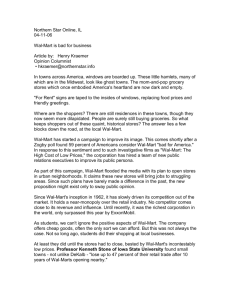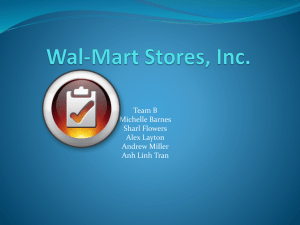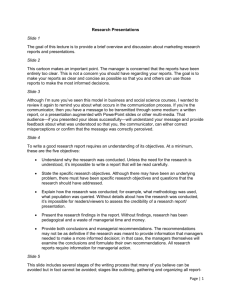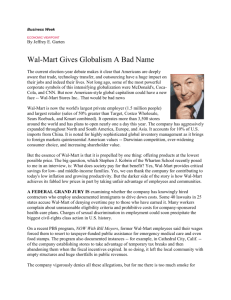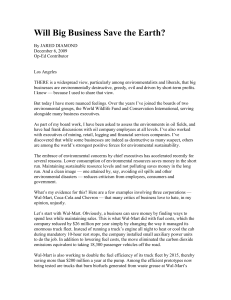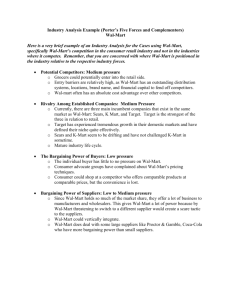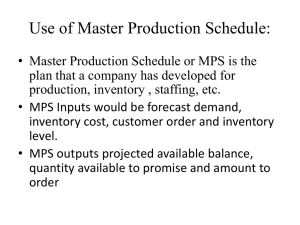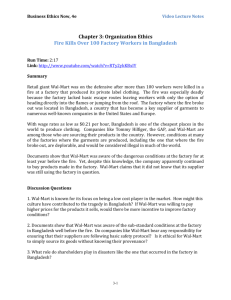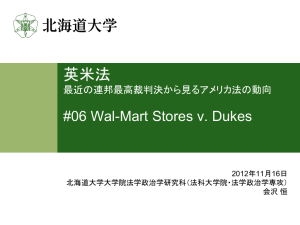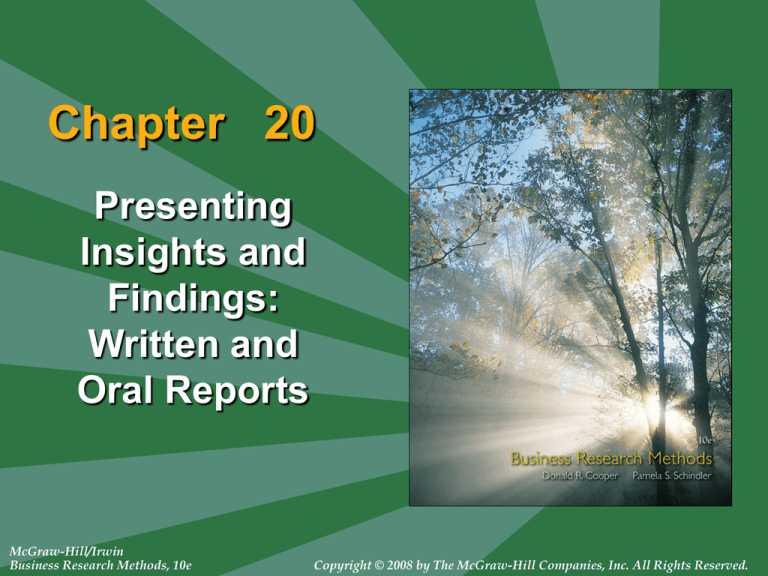
Chapter 20
Presenting
Insights and
Findings:
Written and
Oral Reports
McGraw-Hill/Irwin
Business Research Methods, 10e
Copyright © 2008 by The McGraw-Hill Companies, Inc. All Rights Reserved.
20-2
Learning Objectives
Understand . . .
• That a quality presentation of research findings
can have an inordinate effect on a reader’s or a
listener’s perceptions of a study’s quality.
• The contents, types, lengths, and technical
specifications of research reports.
• That the writer of a research report should be
guided by questions of purpose, readership,
circumstances/ limitations, and use.
20-3
Learning Objectives
Understand . . .
• That while some statistical data may be
incorporated into the text, most statistics should
be placed in tables, charts, or graphs.
• That oral presentations of research findings
should be developed with concern for
organization, visual aids, and delivery in unique
communication settings.
20-4
Relevance. Not Quantity.
“Focus on relevance. It’s never about the
volume of analyzed data or the complexity of an
algorithm but about the actionability of derived
insight.”
Michael Fassnacht, founder
Loyalty Matrix
Sponsor Presentation
and the Research Process
20-5
20-6
The Written Research Report
20-7
Guidelines for Short Reports
Tell reader why you are writing
Remind reader of request
Write in an expository style
Write report and hold for review
Attach detailed materials in appendix
20-8
The Long Research Report
20-9
Report Modules
Prefatory Information
Introduction
Methodology
Findings
Conclusions & Recommendations
Appendices
Bibliography
Components:
Short Report: Memo or Letter-Style
1. Introduction
Problem statement
Research objectives
Background
2. Conclusions
Summary and conclusions
Recommendations
20-10
Components:
Short Report: Technical
1. Prefatory Information (all)
2. Introduction (all, plus brief methodology
and limitations)
3. Findings
4. Conclusions
5. Appendices
20-11
Components:
Long, Report: Management
1. Prefatory
Information (all)
2. Introduction (all,
plus brief methods
and limitations)
3. Conclusions and
Recommendations
4. Findings
5. Appendices
20-12
Components:
Long Report: Technical
1. Prefatory
Information
2. Introduction
3. Methodology (full,
detailed)
4. Findings
5. Conclusions
6. Appendices
7. Bibliography
20-13
20-14
Sample Findings Page: Tabular
20-15
Sample Findings Page: Graphical
20-16
Findings Page Templates
20-17
Prewriting Concerns
What is the report’s purpose?
Who will read the report?
What are the circumstances?
How will the report be used?
20-18
The Outline
I.
Major Topic Heading
A. Major subtopic heading
1. Subtopic
a. Minor subtopic
1) Further detail
20-19
Types of Outlines
Topic
I. Demand
A. How measured
1. Voluntary error
2. Shipping error
a. Monthly
variance
Sentence
I. Demand for refrigerators
A. Measured in terms f
factory shipments as
reported by the U.S.
Department of
Commerce
1. Error is
introduced into
year to year
comparisons
20-20
Grammar and Style Proofreader Results
20-21
Adjusting Pace
Use ample white space
Use headings
Use visual aids
Use italics and underlining
Choose words carefully
Repeat and summarize
Use service words strategically
20-22
Considerations for Writing
Readability
Comprehensibility
Tone
20-23
Avoiding Overcrowded Text
Use shorter paragraphs
Indent or space parts of text
Use headings
Use bullets
20-24
Presentation of Statistics
Text
Semi-tabular
Tables
Graphics
20-25
Example of Text Presentation
Wal-Mart regained its top rank in the
Forbes 500 due to its strong sales
performance (11% increase, $351.1 billion).
Although Wal-Mart surpassed number-2
ranked Exxon Mobil in sales, Wal-Mart’s
profitability ($11.2 billion) was far below that
of the oil giant ($39.5 billion).
20-26
Example: Semi-Tabular Presentation
Although Wal-Mart regained the top spot in the
Fortune 500, its performance shows signs of
weakness in profitability.
• Wal-Mart is the largest business in the Fortune
500 with sales increasing more than 11% over
last year’s performance.
• Oil giant and energy exploration leader Exxon
Mobil is the most profitable company in the
Fortune 500 due to record crude oil prices
increasing its profits to $39.5 billion, compared
to $11.2 billion for Wal-Mart.
Example of
Tabular Presentation
20-27
Rank
Revenue
($, millions)
Sales
Growth
Profits
Profit
Growth
Wal-Mart
1
$351,139.0
11.2%
$11,284.0
0.5%
Exxon Mobil
2
$347,254.0
02.2%
$39,500.0
9.3%
General
Electric
6
$168,307.0
07.1%
$20,829.0
27.4%
Company
20-28
Sample
Tabular
Findings
20-29
Graphics Presentation
20-30
Sample Graphics within Report
20-31
Sample Line Graph
20-32
Sample Area Chart
20-33
Sample Pie Charts
20-34
Sample Bar Chart
20-35
Pictograph
20-36
Geographs
20-37
3-D Graphs
20-38
The Oral Report
20-39
The Oral Report
Opening
Findings and
conclusions
Recommendations
20-40
Presentation Type
Extemporaneous
Memorized
20-41
Speaker Characteristics
Vocal
• Do you speak softly?
• Do you speak too
rapidly?
• Do you vary volume,
tone, and rate of
speaking?
• Do you fill pauses
(e.g., you know, uhm,
ah)?
Physical
• Do you rock back and
forth?
• Do you fiddle with
things?
• Do you stare into
space?
• Do you misuse
visuals?
20-42
Audiovisuals
High Tech
• Computerdrawn visuals
• Computer
animation
• Computer with
embedded
video and audio
clips
20-43
Audiovisuals
Low Tech
• Chalkboard/
Whiteboard
• Handouts
• Flip charts
• Overhead
transparencies
• Slides
20-44
Key Terms
•
•
•
•
•
Area chart
Bar chart
Briefing
Executive summary
Extemporaneous
presentation
• Geographic chart
• Letter of transmittal
• Line graph
•
•
•
•
•
•
•
•
•
Management report
Pace
Pictograph
Pie chart
Readability index
Sentence outline
Technical report
3-D graphic
Topic outline

